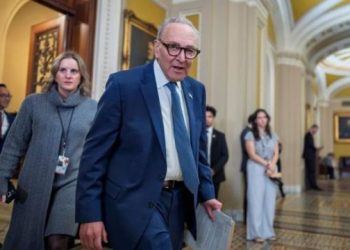Elon Musk has done it again.
Fresh off using Twitter to influence political discourse, Musk has now turned his attention to Europe. His latest tweet about Germany has sparked a frenzy among left-leaning global elites.
In response to a video posted on X by Naomi Seibt—a young German YouTuber dubbed the “anti-Greta Thunberg”—calling out Germany’s presumptive chancellor Friedrich Merz for refusing to work with the “Germany First” AfD party, Musk tweeted just five words:
“Only AfD can save Germany.”
The backlash was immediate and intense. Here’s a sample of global headlines reacting to Musk’s statement:
• “Outrage as Elon Musk claims ‘only AfD can save Germany’” (The Guardian)
• “Backlash builds as Elon Musk endorses Germany’s far right” (Politico EU)
• “Anger after Musk backs German far right” (France 24)
• “Musk Pauses Torment of GOP to Praise German Extremists” (New York Magazine)
Critics have characterized AfD (Alternative für Deutschland) as a far-right, anti-immigrant, and anti-Islam party, with some noting it is under surveillance by Germany’s domestic intelligence agency. NBC described Musk’s comments as an endorsement of a party with controversial positions that are seen by some as extremist.
But what does AfD actually advocate?
On its official website, AfD defines itself under the banner, “COURAGE FOR GERMANY. FREE CITIZENS, NOT SUBJECTS,” claiming to represent liberal and conservative values, free citizens, democracy, and rule of law. The party’s platform emphasizes:
• Direct democracy, federalism, and cultural preservation.
• The family, Western Christian traditions, and national sovereignty.
• An open but distinctly German society, with a focus on preserving their language, culture, and traditions.
AfD’s rise parallels that of other hardline conservative movements across Europe, like Giorgia Meloni in Italy and Marine Le Pen in France. Critics of AfD argue that its policies reflect xenophobia, while supporters see it as the best chance to revitalize Germany amidst the ongoing political upheaval in Europe.
Germany is slated to hold elections on February 23, following the collapse of the leftist government led by Chancellor Olaf Scholz earlier this week. Musk’s endorsement could have significant ripple effects, as it positions him not just as a tech billionaire but as a major political influencer in global affairs.
This move is another clear signal of Musk’s growing willingness to wield his platform and influence in reshaping political landscapes worldwide.
 Telegram is where we really talk. Don't miss out!
Telegram is where we really talk. Don't miss out!







